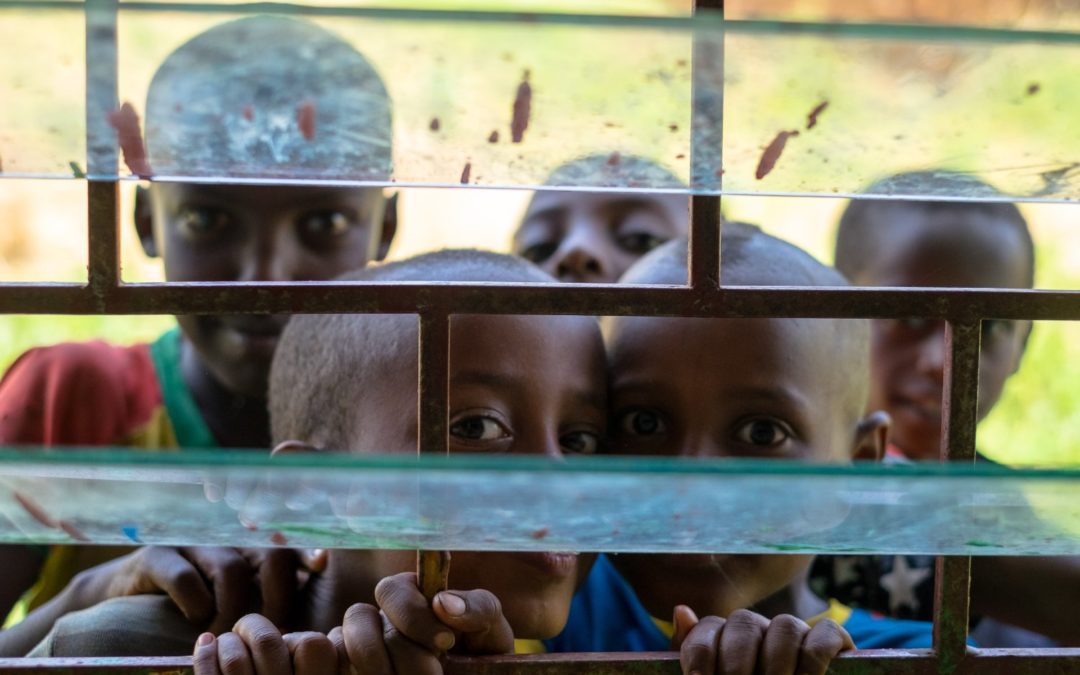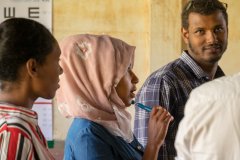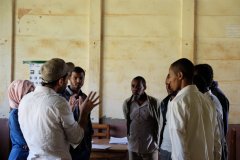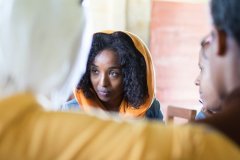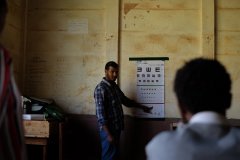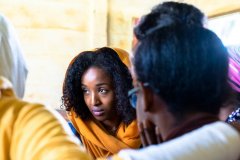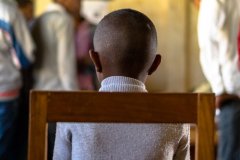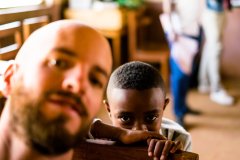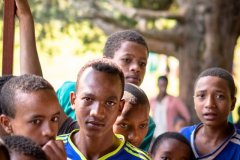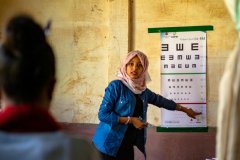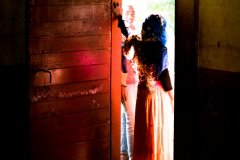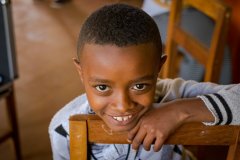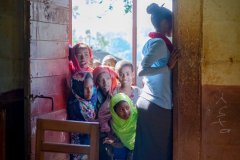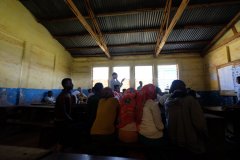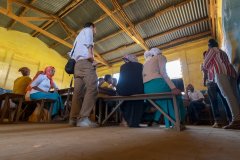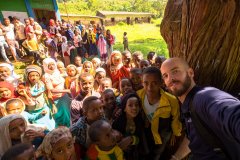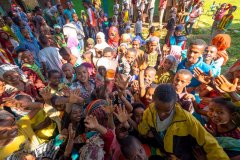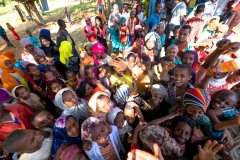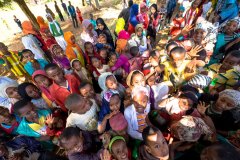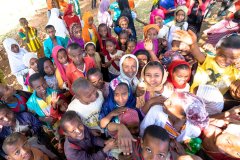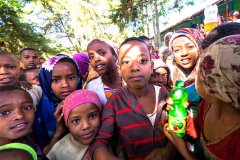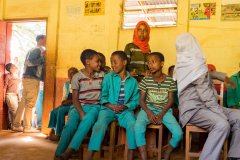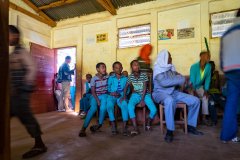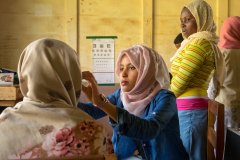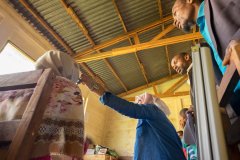Heading to Jimma to meet up with my friend Michael, co-founder of the social venture Direct Coffee.
Attention note to the readers: this article will be a bit longer, as it sets the backbone/purpose of the whole trip. So feel free to read it carefully, to thumb it through or to just look at the pictures 😉

As mentioned in a previous post, the main aim of my trip to Ethiopia was to accompany my friend Michael during his business trip. He wanted me to take pictures of and to document the implementation of the social projects.
Back in 2015, Michael quit his job at a big consultancy, and with his wife Marie, founded Direct Coffee. Here, I don’t want to emphasize too much. They explain the whole concept on their website. But to explain things briefly, Direct Coffee buy coffee beans directly at the local cooperatives in Ethiopia. And by cutting the middlemen along the value chain, they can maximize their margin, which will in turn be used to implement social projects in the very own communities where they buy the coffee from. Simple right? So when you buy coffee on their website you
- have access to the finest Ethiopian organic and sustainable coffee;
- will be sure that the local partners will get a fair price for their coffee;
- will subsidize a social project in a specific community.
So even if this post looks a bit like a sponsored contribution, I can assure you that it is none. I spent almost three weeks with Michael on the field, looking at how these projects make a significant impact on thousands of kids by empowering the whole communities (farmers, parents, teachers, etc.). So this is my way of showing them my appreciation of what they are doing.
Once a year, Michael spends roughly a month in the Jimma region (Southern Ethiopia), where all the coffee plantations are located. The coffee harvest time, which lasts from mid-November to mid-December, is the period where pretty much everything is happening.
During this time, Michael visits new coffee cooperatives (this is how the coffee business is organized in Ethiopia), he does cupping session with coffee experts where he pre-selects the coffee cooperatives, from which he will buy the coffee. And on the other hand, this is the time when Direct Coffee implements the above-mentioned social projects.
So during roughly three weeks, I accompanied him on the field, looking at it from a extern perspective. I tried to understand how the coffee business works in Ethiopia (coffee is one of the biggest businesses in Ethiopia), documenting the field work (social projects) and getting, as a positive externality, very deep insights on the coffee value chain. Have a question? Just ask… 😉
In the following posts, I will focus on the three main projects we did:
- Eye-screening day in cooperation with the German NGO One-dollar-glasses at the Qotta School;
- School-meals at the Bufeta Gibe School (here);
- The eco-tourism week with 5 Swiss coffee lovers and interested customers (here).
So let’s talk finally about fact. Supplying needed kids with glasses have a significant impact on their school results (more here). So here is the starting point. You rarely encounter school kids with eye-glasses, especially in rural areas. And I can tell you that they don’t have better eyes than we do. During the screen-tests, we had kids with deficient vision up to -16/-7. So why is it so? Populations in rural areas lack access to basic supply (eye-glasses).
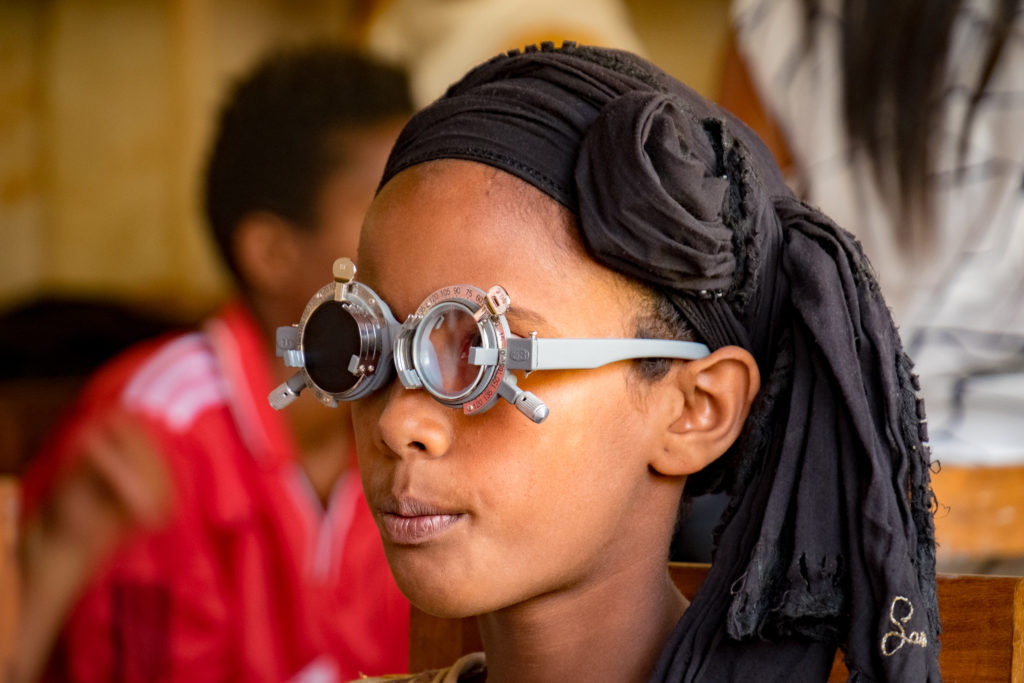
So the German NGO one-dollar-glasses came up with a brilliant concept:
“a lightweight, flexible spring steel frame and prefab lenses and can be locally manufactured with simple bending machines”.
The material costs approximately 1 US $. In our case the parents pay 50 birr (to get a sense of the value of the object and to incite their kids to actually wear them at school). And Direct Coffee, well actually the customers, will subsidize the rest.
So on the 22nd of November, Direct Coffee in collaboration with the Jimma University Department of Ophthalmology and One-dollar-glasses went to the Qotta School, near Agaro. During a day, the protagonists eye-screened 1,000+ children and provided the needed ones with brand new glasses. Want to know more about the metrics? Hit up Direct Coffee via Facebook for instance
Here after, a few pics of that intense but rewarding day (click on a pic to enlarge).
